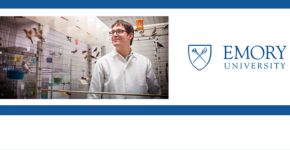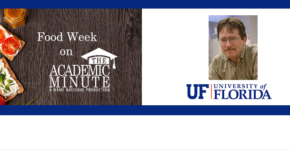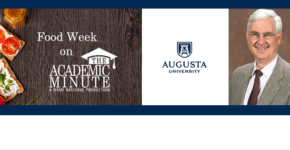Category: Biology
-

Victoria Vieira-Potter, University of Missouri – Exercise Changes Gut Microbes
Exercising may also help you in ways you can’t see. Victoria Vieira-Potter, assistant professor of nutrition and exercise physiology in the College of Human Environmental Sciences at the University of Missouri, discusses why exercise helps inside your gut. Victoria Vieira-Potter, PhD is an assistant professor of nutrition and exercise physiology in the College of Human…
-

Jan Zalasiewicz, University of Leicester – A New Age
Are we entering a new age? Jan Zalasiewicz, professor of paleobiology at the University of Leicester, delves into the Anthropocene. Jan Zalasiewicz is Professor of Palaeobiology at the University of Leicester, UK. In early career he was a field geologist and palaeontologist at the British Geological Survey, working to decipher the strata of eastern England…
-

Janice Chism, Winthrop University – Saki Monkeys
How do you study monkeys that you can’t see? Janice Chism, professor of biology and anthropology at Winthrop University, describes looking for meaning in Saki monkey calls to observe this bashful breed. Dr. Chism has carried out research on wild primate populations throughout the world including a four-year National Science Foundation Fellowship which supported a…
-

Ali Torkamani, Scripps Research Institute – Wellderly
What good is extending your lifespan if your health doesn’t go along with it? Ali Torkamani, Assistant Professor of Molecular and Experimental Medicine at the Scripps Research Institute, studies the “wellderly” and what we can learn about healthy aging from this group. Ali Torkamani, Ph.D., who is Assistant Professor of Molecular and Experimental Medicine at…
-

Matthew Will, University of Missouri – Cravings
Which part of your brain is responsible for giving in to cravings? Matthew Will, associate professor in the department of psychological sciences at the University of Missouri, finds out. Will’s lab researches the neurological underpinnings of addiction. Using rats, he studies the neural networks in the brain that motivate humans and animals to seek out…
-

Samuel Sober, Emory University – Learning From Mistakes
It pays to learn from your mistakes. Samuel Sober, assistant professor in the biology department at Emory University, explores which part of our brain helps us avoid making the same error twice. I attended Wesleyan University, where I received a BA in Neuroscience & Behavior. I did my doctoral research as an NSF Graduate Research…
-

Molly Cummings, University of Texas at Austin – Fish Skin Provides Invisibility in Open Ocean
How do you hide from predators in the open ocean? Molly Cummings, associate professor of biological sciences at the University of Texas at Austin, explains how fish use polarized light to disappear from view. Molly Cummings studies the evolutionary forces that shape the ways that animals communicate. She studies how fish and frogs camouflage themselves…
-

James Cook, University of Missouri School of Medicine – A Better Fix for Torn ACLs
A new technique to treat ACL injuries may be on the way. James Cook, Professor in Orthopedic Surgery at the University Of Missouri School Of Medicine, describes this new technique and how it could lead to a more active lifestyle for those with repaired ACLs in their knees. James Cook, D.V.M., Ph.D., serves as the…
-

Jeff Brecht, University of Florida – Reducing Food Waste
The amount of food that is wasted in the United States is startling. Jeff Brecht, Research Foundation Professor in the Horticultural Sciences Department at the University of Florida, examines how getting over our fascination with perfect looking food could help us save a bundle at the grocery store. My primary responsibilities involve instruction, research and…

